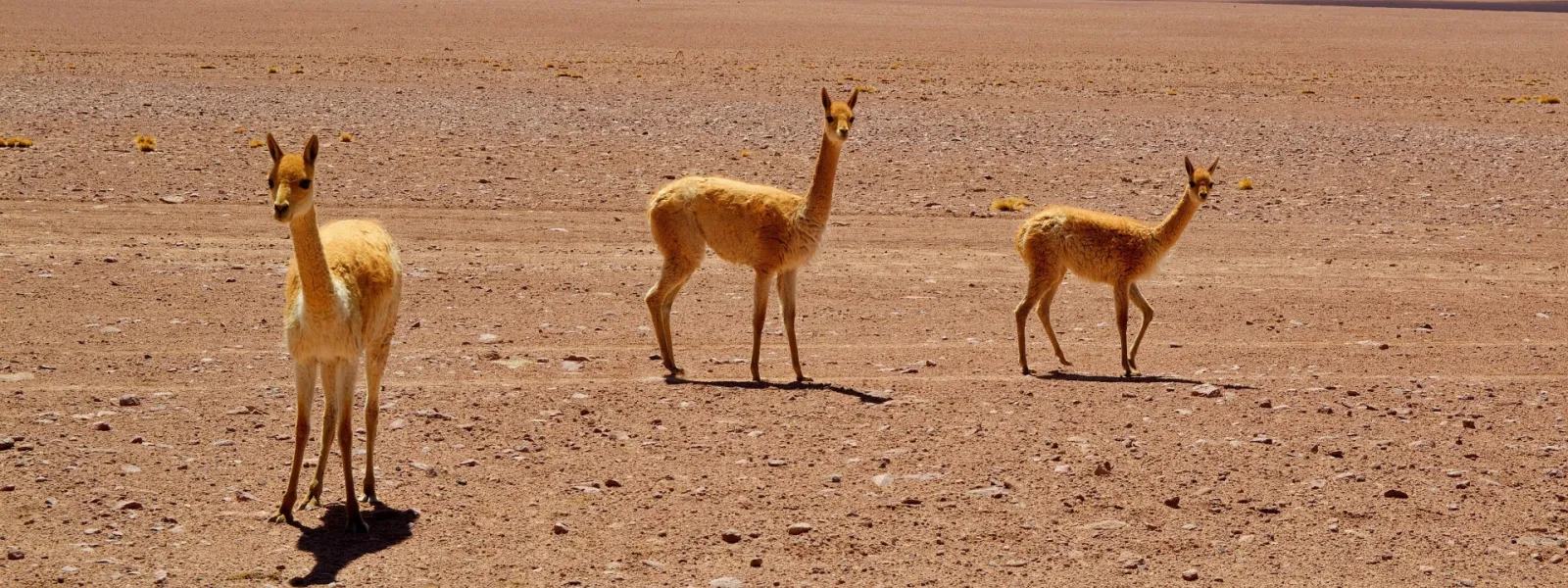
COP16: To conserve biodiversity, governments must respect indigenous and local knowledge
Photo: Jonny Joka on Pixabay.At the UN Conference on Biodiversity, countries must also make progress in ensuring the participation of indigenous and local communities in decision-making on biodiversity. The energy transition model of the global north implies irreversible impacts for the Andean wetlands and the communities that inhabit them, whose territories overlap with lithium reserves.
Ahead of the 16th meeting of the Conference of the Parties (COP16) to the Convention on Biological Diversity (CBD), which will take place from October 21 to November 1 in Cali, Colombia, the Alliance for Andean Wetlands (Alianza por los Humedales Andinos) calls on member countries to respect, preserve and maintain the knowledge, innovations and practices of indigenous and local communities for the conservation and sustainable use of biological diversity. Doing so implies honoring the obligations acquired with the signing of the treaty.
In addition, the signatory countries of the convention must make progress, through the presentation of concrete action plans at the national level, in ensuring the participation of communities in decision-making on biodiversity issues, one of the 23 targets of the Kunming-Montreal Global Biodiversity Framework adopted in 2022.
One of the goals of COP16 is to review compliance with these targets, aimed at halting and reversing biodiversity loss by 2030.
According to the Living Planet Report, Latin America is the region with the greatest loss of biodiversity, as populations of all species show an average decline of 94% and 83% in the case of freshwater species.
The Alliance warns of the irreversible impacts that the energy transition model promoted from the global north implies for the Andean wetlands, where some of the most sought-after transition minerals, such as lithium and copper, are found.
These ecosystems harbor more than that: they are home to an enormous and unique biodiversity, as well as to local communities that depend on them and that for thousands of years have protected and preserved them, maintaining the ecological balance.
Quotes from members of the Alliance for Andean Wetlands
Laura Castillo, Coordinator of the High Andean Program at Fundación Ambiente y Recursos Naturales (FARN), Argentina:
"To address the biodiversity crisis, it is crucial to transcend the current paradigm of production and consumption, which promotes excessive use of environmental goods and exacerbates the ecological crisis. To this end, it is imperative to promote the reduction of high levels of consumption of natural goods, especially from the global north. Solutions to the climate and biodiversity crises -which are closely related- will inevitably require countries to define their own socio-ecological transitions towards models of life that respect human rights and planetary limits."
Vivian Lagrava Flores, Coordinator of Empodérate and the Wetlands, Biodiversity and Water Protection project, Bolivia:
"Biodiversity and water should not be assumed as an 'exploitable resource' by the States. As long as this mercantilist view persists, we will have more people affected by mining and sacrificed and, therefore, more biodiversity exposed and at risk of extinction."
Verónica Gostissa, attorney and coordinator of the Alianza por los Humedales Andinos project at Asamblea Pucará, Catamarca, Argentina:
"It is urgent to address the problem of lithium exploitation in the Puna. It is advertised as 'clean energy', but it is devastating our ecosystems. In Argentina, they intend to turn the Salar del Hombre Muerto into an industrial park, installing more than eight projects in the same territory. In this COP, it is crucial to recognize the irreversible impact generated by extractivism and, from there, to deploy ecosystemic links based on the care of all that is vital."
Cynthia Escares, biologist and director of the NGO Defensa Ambiental, Chile:
"The climate crisis is an undeniable reality. However, in its name, forms of extractivism disguised as clean energy and equity are being promoted, without recognizing the profound implications of these processes. Projects such as lithium and rare earth mining, essential for batteries and green technologies, are presented as solutions to climate change, but they replicate the same logics of exploitation that have historically devastated territories and communities. This time, not only will we lose the inhabitants of these vulnerable regions, but we are leading the planet and all its biodiversity towards an irreversible collapse."
Yeny Rodríguez, senior attorney with the Ecosystems Program at the Interamerican Association for Environmental Defense (AIDA):
"The biological and cultural diversity of our region is at risk. After COP16, it should be understood that we can no longer talk about defossilization as the panacea that will save us from the climate crisis. The energy transition towards 'clean energy' also requires the extraction of minerals such as lithium, an industry that in Latin America is already causing the destruction of Andean wetlands and the disappearance of rivers. We are facing an opportunity to move towards the protection of biodiversity and the human rights of the native communities that have cared for the territories since before the existence of our States."
Ramón Balcázar Morales, executive director and researcher of Fundación Tantí, Chile:
"The salt flats from which South American lithium is obtained are wetlands, territories inhabited by indigenous peoples and communities whose ways of life are key to the conservation of ecosystems that sustain a threatened biodiversity. Faced with the deepening of the polycrisis, we must promote democratic processes that allow us, as a society, to overcome the profound contradiction between the climate agenda based on green growth and the biodiversity conservation agenda. This requires governmental and institutional efforts and will to strengthen and dialogue with communities and social actors in the territories affected by mining and energy megaprojects associated with the energy transition."
